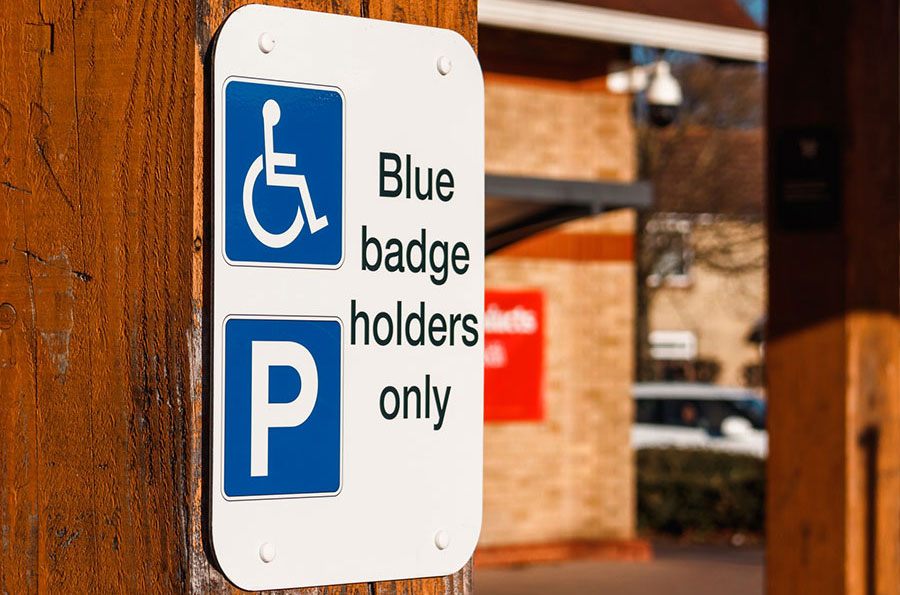
In today’s highly competitive rental and housing market, a person with a disability might wonder if they would be at a disadvantage finding affordable housing. It can be challenging to find something that covers affordability, accessibility, and does not discriminate. Fortunately, there are options for the disabled.
The U.S. Department of Housing and Urban Development (HUD) has a variety of government-funded programs available. It will take some work to seek out the best fit for someone with special needs. However, when you know what’s available as far as tools and assistance, you will have a good foundation to start your search seeking out independent living arrangements.
You may need to look for a local advocacy program such as your local Public Housing Agency (PHA) that can assist with locating a suitable place that meets the physical requirements needed while seeking out financial assistance for rent through a HUD program. HUD is also the program that enforces fair housing laws opening doors for those with disabilities. Most programs will need to see proof of income so gather all the paperwork you will need before your first visit.
Here are some types of HUD funding programs available for people with disabilities:
- Housing Choice Vouchers Section 8 or (HCV)
- Non-Elderly Disabled Vouchers (NED)
- Homeownership and Opportunity for Everyone Program (HOPE I)
- Veterans Affairs Supportive Housing Vouchers (VASH)
- Emergency Housing Vouchers (EHV)
- Housing Opportunities for Persons with AIDS (HOPWA)
With such a variety of options to pursue, we are only going to focus on a few here.

What is a Section 8 Voucher?
The Section 8 Housing Choice Voucher program, also currently known as HCV, provides rent assistance for very low-income families, the elderly, and people with disabilities. Start by visiting your local Public Housing Agency (PHA) to see if you qualify and begin the application process with them. If you do qualify for a voucher, the payments will cover some or all of the voucher holder’s rent. On average, each household will pay between 30% to 40% of their income on rent. You can apply at more than one PHA. They can also give you a list of locations where your voucher can be used. Participants will be able to select their housing as long as the rental meets the program requirements. The unfortunate part of this program is that there is such a high demand for approved housing that approved applicants are placed on waiting lists which vary from 12 to 18 months. That’s why applying at more than one PHA is a good idea. The wait will depend on the applicant’s current housing status, the area of the state they are looking for housing, and program funding levels.
What is a NED voucher?
Non-Elderly persons with Disabilities voucher, known as a NED voucher, is a special purpose program that is specifically targeted to individuals and families with a non-elderly person with disabilities that is older than 18 but less than 62-years-old that is either:
- Homeless or at risk of homelessness (which must be verified by a qualified service provider) or
- Transitioning out of an institutional setting or at risk of being placed in an institution (which must also be verified by a qualified service provider or a medical professional).
To be eligible, applicants must meet HUD income guidelines. Qualified participants typically pay approximately 30 percent of adjusted monthly income for rent. Like Section 8 vouchers, this program is also in high demand so expect to be put on a waiting list anywhere from 12 to 18 months which can depend on current housing status, the area of the state, and program funding levels available.
What is a HOPE Voucher?
If you were looking specifically for a HOPE voucher, there isn’t one but a few years ago there was a HOPE grant that provided a Section 8 rental voucher. The original Hope for Elderly Independence (HOPE IV) program is no longer active. What is currently available is the Homeownership and Opportunity for Everyone (HOPE I) program, a federal aid program from HUD, that helps people buy public housing units by funding non-profits, resident groups, and other eligible organizations that develop and implement homeownership programs. Some states do currently have a HOPE program that gives grants to those seeking homeownership.
This program is very limited at this time. You will have to search to see if there are local organizations or mortgage companies that will help you access information on all the grants that are available in your area so you can start on your path to becoming a homeowner. Becoming a homeowner takes dedication and regular maintenance so you will have to determine if homeownership is right for you.
The Path to Independence
While filling out paperwork, make sure everything required is there. All pages are filled out and signed. All paperwork is included. Have someone you trust look over the information to make sure nothing is overlooked or missing before turning it in. With government programs missing one signature can be all it takes for an application to be turned down.
Waiting lists, whenever there is an immediate need for housing, is never a best-case scenario. However, sometimes things will open up sooner. Calling the places where you are on a list every two to three months will give you a good idea if that wait is shorter than expected. Occasionally people ahead of you on the list are no longer in the area or no longer in need of housing and it can move you closer to the top, getting you in sooner than you anticipated. The key to powering through this whole process will be patience. The pay-off is living independently in a place that you can call your own.
Please do not hesitate to contact Syringa Property Management if you have any questions. We would be happy to help you find housing that will suit the needs of you and your family.